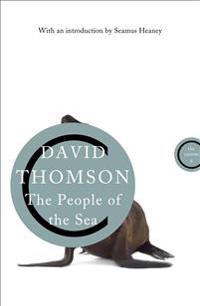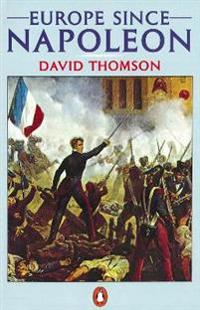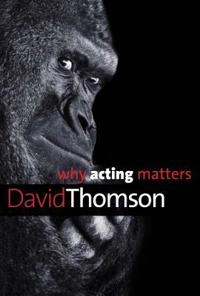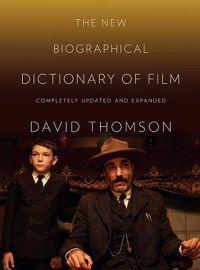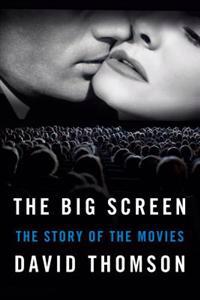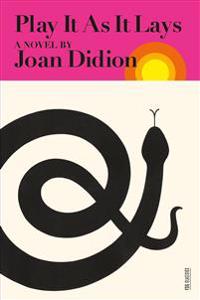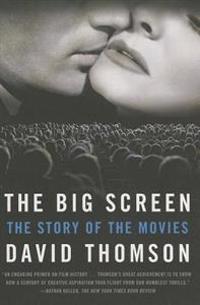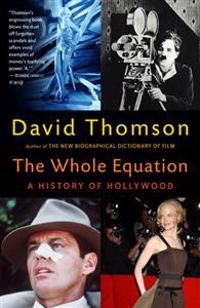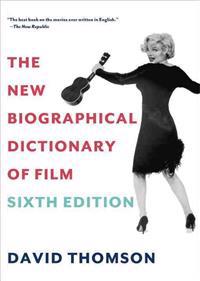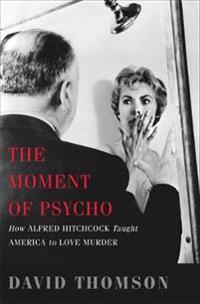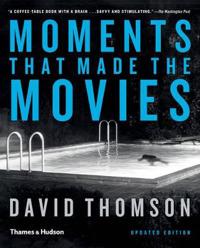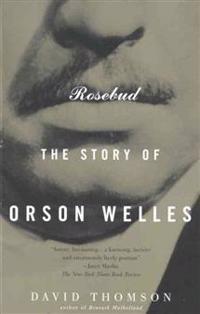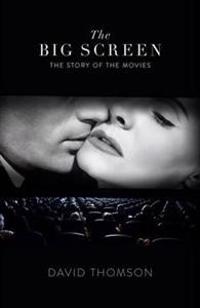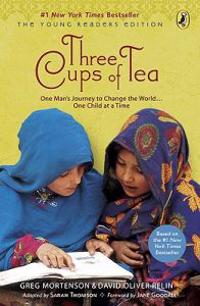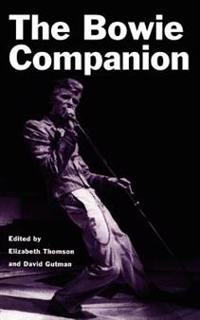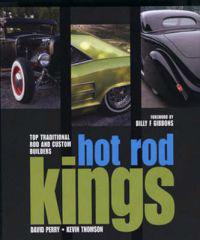The People of the Sea (Häftad)
avDavid Thomson, David Thomson
ISBN: 9780857861856 - UTGIVEN: 201108In an extraordinary exercise of historical reconstruction, David Thomson travels through the Hebrides and the west coast of Ireland, telling stories, centuries old, of the 'selchie' or grey Atlantic seal. His fascinating legends - narrative, lyrical and dramatic - explore love, loss, return and resc[...]
Europe Since Napoleon (Storpocket)
avDavid Thomson
ISBN: 9780140135619 - UTGIVEN: 1990-11This is a history of Europe since Napoleon, covering all of the main topics of that period.
The Big Screen: The Story of the Movies and What They Did to Us (Häftad)
avDavid Thomson
ISBN: 9780141047126 - UTGIVEN: 2013-10-03Tells the story of the movies and how they have shaped us. Taking us around the globe, through time and across multiple media, this title tracks the ways in which we were initially enchanted by this mesmerizing imitation of life and let movies - the stories, the stars, the look - show us how to live[...]
Why Acting Matters (Inbunden)
avDavid Thomson
ISBN: 9780300195781 - UTGIVEN: 2015-04Does acting matter? David Thomson, one of our most respected and insightful writers on movies and theater, answers this question with intelligence and wit. In this fresh and thought-provoking essay, Thomson tackles this most elusive of subjects, examining the allure of the performing arts for both t[...]
The New Biographical Dictionary of Film: Fifth Edition, Completely Updated and Expanded (Inbunden)
avDavid Thomson
ISBN: 9780307271747 - UTGIVEN: 201010The Big Screen: The Story of the Movies (Inbunden)
avDavid Thomson
ISBN: 9780374191894 - UTGIVEN: 201210"The Big Screen "tells the enthralling story of the movies: their rise and spread, their remarkable influence over us, and the technology that made the screen--smaller now, but ever more ubiquitous--as important as the images it carries."The Big Screen "is not another history of the movies. Rather, [...]
The Big Screen: The Story of the Movies (Häftad)
avDavid Thomson
ISBN: 9780374534134 - UTGIVEN: 2013-10The definitive story of the medium that defines our times
"The Big Screen "tells the enthralling story of the movies: their rise and spread, their remarkable influence over us, and the technology that made the screen as important as the images it carries.
But "The Big Screen "is not another [...]The Whole Equation: A History of Hollywood (Häftad)
avDavid Thomson
ISBN: 9780375701542 - UTGIVEN: 2006-02A historical odyssey through the Hollywood film industry ranges from the silent movie era to the present day, exploring the ways in which movies both shape and are shaped by American culture; discussing the contributions of such pioneers as Griffith, Chaplin, Selznick, and Spielberg; profiling Holly[...]
The New Biographical Dictionary of Film: Sixth Edition (Häftad)
avDavid Thomson
ISBN: 9780375711848 - UTGIVEN: 2014-05With more than 100 new entries, from Amy Adams, Benedict Cumberbatch, and Cary Joji Fukunaga to Joaquin Phoenix, Mia Wasikowska, and Robin Wright, and completely updated, here from David Thomson--"The greatest living writer on the movies" (John Banville, "New Statesman");"""Our most argumentative an[...]
The Moment of Psycho (Pocket)
avDavid Thomson
ISBN: 9780465020706 - UTGIVEN: 2010-11It was made like a television movie, and completed in less than three months. It killed off its star in forty minutes. There was no happy ending. And it offered the most violent scene to date in American film, punctuated by shrieking strings that seared the national consciousness. Nothing like Psych[...]
Blueprint to a Billion: 7 Essentials to Achieve Exponential Growth (Inbunden)
avDavid Thomson, Marshall Goldsmith
ISBN: 9780471747475 - UTGIVEN: 2005-12-31Moments That Made the Movies (Pocket)
avDavid Thomson
ISBN: 9780500291559 - UTGIVEN: 2014-11In the first fully illustrated work of his illustrious career, David Thomson re-examines a series of moments which readers will experience in beautifully reproduced imagery from seventy-two carefully selected films across a hundred-year time span. His moments range from a set of Eadward Muybridges p[...]
Rosebud: The Story of Orson Welles (Häftad)
avDavid Thomson
ISBN: 9780679772835 - UTGIVEN: 199709A New York Times Notable Book of the Year
"Easily the best book on Orson Welles." --The New Yorker
Orson Welles arrived in Hollywood as a boy genius, became a legend with a single perfect film, and then spent the next forty years floundering. But Welles floundered so variously[...]The Big Screen (Inbunden)
avDavid Thomson
ISBN: 9781846143144 - UTGIVEN: 201210In this triumphant work David Thomson, one of film's greatest living experts and author of "The New Biographical Dictionary of Film", tells the enthralling story of the movies and how they have shaped us. "Sunday Times", "New Statesman", "The Times", "Guardian", "Observer" and "Independent" Books Of[...]
Three Cups of Tea: One Man's Journey to Change the World... One Child at a Time (Häftad)
avGreg Mortenson, David Oliver Relin, Sarah Thomson
ISBN: 9780142414125 - UTGIVEN: 200902Youngs Readers Edition
The Bowie Companion (Häftad)
avElizabeth Thomson, David Gutman
ISBN: 9780306807077 - UTGIVEN: 1996-08Despite his vast influence and perennial popularity, David Bowie remains one of the most elusive figures in rock, and few books have taken a serious look at his remarkable career. The Bowie Companion provides an entertaining overview of nearly three decades of popular culture commentary, giving ful[...]
Mastering the 7 Essentials of High-Growth Companies: Effective Lessons to G (Inbunden)
avDavid G. Thomson
ISBN: 9780470610626 - UTGIVEN: 2010-06-30Hot Rod Kings (Inbunden)
avDavid Perry, Kevin Thomson, Billy F. (FRW) Gibbons
ISBN: 9780760327388 - UTGIVEN: 2007-08Contained in this book are profiles of today's top Hot Rod and Custom car builders. Venture into this all-steel enclave, and see the work of top builders like Cole Foster, Gary Howard, Mike Smith, Rudy Rodriguez, Mercury Charlie and many more, discovering how they work, think, design and build. With[...]
The Big Sleep (Pocket)
avThomson, David
ISBN: 9780851706320 - UTGIVEN: 1997-02-01This text shows how "The Big Slee"p signalled a change in the nature of Hollywood cinema, as the director Howard Hawks shot extra scenes, "fun" scenes, to replace the ones in which the murders are explained, and in so doing left the plot unresolved.[...]

